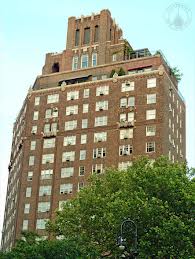 New York City’s population density inherently gives rise to noise complaints by cooperative neighbors. The New York Post reported today about a lawsuit filed by a cooperative shareholder against his neighbor for unreasonable noise caused by his neighbor’s piano playing. This blog entry will discuss the various issues raised by this lawsuit.
New York City’s population density inherently gives rise to noise complaints by cooperative neighbors. The New York Post reported today about a lawsuit filed by a cooperative shareholder against his neighbor for unreasonable noise caused by his neighbor’s piano playing. This blog entry will discuss the various issues raised by this lawsuit.
Cooperatives are legally formed upon the acceptance of its Offering Plan for filing with the Real Estate Finance Bureau of the New York State Attorney General’s Office. The cooperative’s Proprietary Lease and House Rules would be included in its Offering Plan. At the closing, the shareholder signs the Proprietary Lease and House Rules, agreeing to the terms thereof. The Proprietary Lease contains the provisions by which a shareholder has the right to occupy a particular unit and the regulations governing such occupancy, such as the obligation to pay maintenance, sublease rules and rights to transfer the unit. House Rules contain specific itemized rules such as where packages may be delivered, laundry room rules, move-in and move-out regulations, and rules governing which elevator can be used for freight or pets. If the House Rules are violated, such a breach is deemed to be a violation of the Proprietary Lease. The Proprietary Lease contains provisions for the cooperative’s board’s response to a default, typically commenced by the service of a default notice, which may result in the service of a termination notice.
Most Proprietary Leases contain a clause prohibiting a shareholder from making unreasonable noises. Likewise, the House Rules governing many cooperative buildings commonly prohibit the playing of musical instruments between the hours of 11:00 pm and 9:00 am. Once a shareholder finds the noise to be unreasonable, he should bring the matter to the attention of the board of the cooperative, encouraging the commencement of a default procedure against the offending shareholder under the objectionable conduct provisions contained in the Proprietary Lease. Should the Board remain unresponsive, the shareholder may need to commence a lawsuit against the cooperative for failure to enforce the governing documents and against the shareholder who is continuing to make unreasonable noise.
 New York Real Estate Lawyers Blog
New York Real Estate Lawyers Blog


 The resurging real estate market brings with it the real estate “flipper”. A flipper is a person or entity that purchases property with the goal of renovating it for a quick sale at a substantial profit. The flipper never intends to occupy the property in the neighborhood. Recently,
The resurging real estate market brings with it the real estate “flipper”. A flipper is a person or entity that purchases property with the goal of renovating it for a quick sale at a substantial profit. The flipper never intends to occupy the property in the neighborhood. Recently,  Our firm often fields inquiries from clients regarding residential lease situations. One common question relates to the right to renew an existing lease. This blog post will explain certain conditions which may apply to the renewal of a lease after it expires.
Our firm often fields inquiries from clients regarding residential lease situations. One common question relates to the right to renew an existing lease. This blog post will explain certain conditions which may apply to the renewal of a lease after it expires.  A
A  New Yorkers who purchase an apartment typically buy what is known as a cooperative (“Co-op”) or condominium (“Condo”). There are important legal distinctions between a cooperative and a condominium that are notable during the purchase process and after the closing of the transaction. This blog post addresses these distinctions.
New Yorkers who purchase an apartment typically buy what is known as a cooperative (“Co-op”) or condominium (“Condo”). There are important legal distinctions between a cooperative and a condominium that are notable during the purchase process and after the closing of the transaction. This blog post addresses these distinctions. Residential real estate contracts in New York State are prepared and negotiated by attorneys, rather than by other real estate professionals such as real estate brokers. This custom allows the opportunity for parties to real estate transactions to have professionally prepared contracts, serving as the road map for the entire transaction. There are particular provisions in a typical New York residential real estate contract of which our readers should be aware.
Residential real estate contracts in New York State are prepared and negotiated by attorneys, rather than by other real estate professionals such as real estate brokers. This custom allows the opportunity for parties to real estate transactions to have professionally prepared contracts, serving as the road map for the entire transaction. There are particular provisions in a typical New York residential real estate contract of which our readers should be aware. Those who bid at property auctions in New York are confronted with many potential issues. Auction properties are often attactive to first-time homeowners and to investors because they are perceived as being less expensive than comparable properties. If the property is residential, the bidding process differs based upon whether the property is a single-family house, a condominium unit or a cooperative unit. The type of property, whether it is commercial or residential, may have implications for tenants already in occupancy and whether such tenants may have statutory occupancy rights.
Those who bid at property auctions in New York are confronted with many potential issues. Auction properties are often attactive to first-time homeowners and to investors because they are perceived as being less expensive than comparable properties. If the property is residential, the bidding process differs based upon whether the property is a single-family house, a condominium unit or a cooperative unit. The type of property, whether it is commercial or residential, may have implications for tenants already in occupancy and whether such tenants may have statutory occupancy rights. A
A